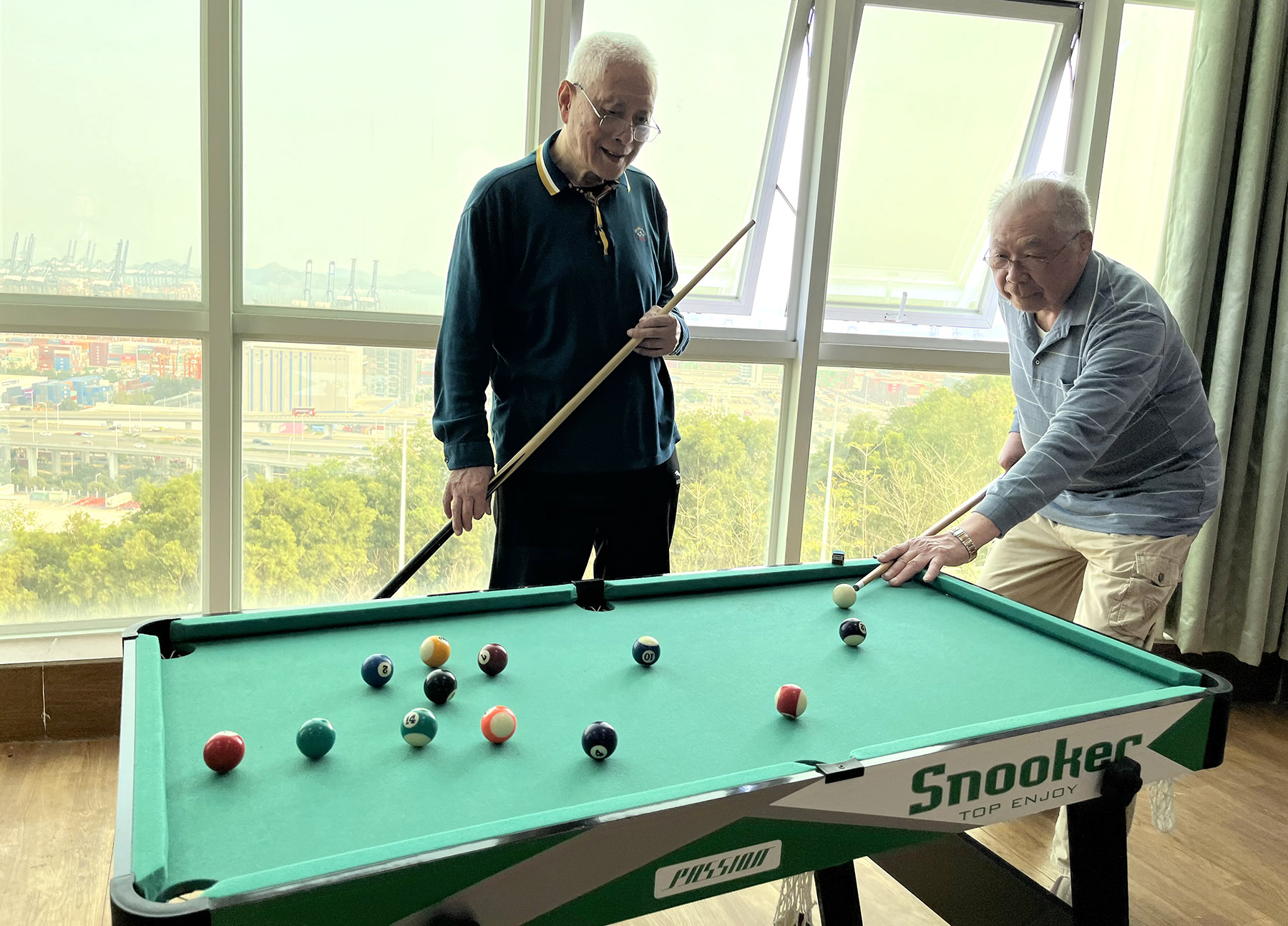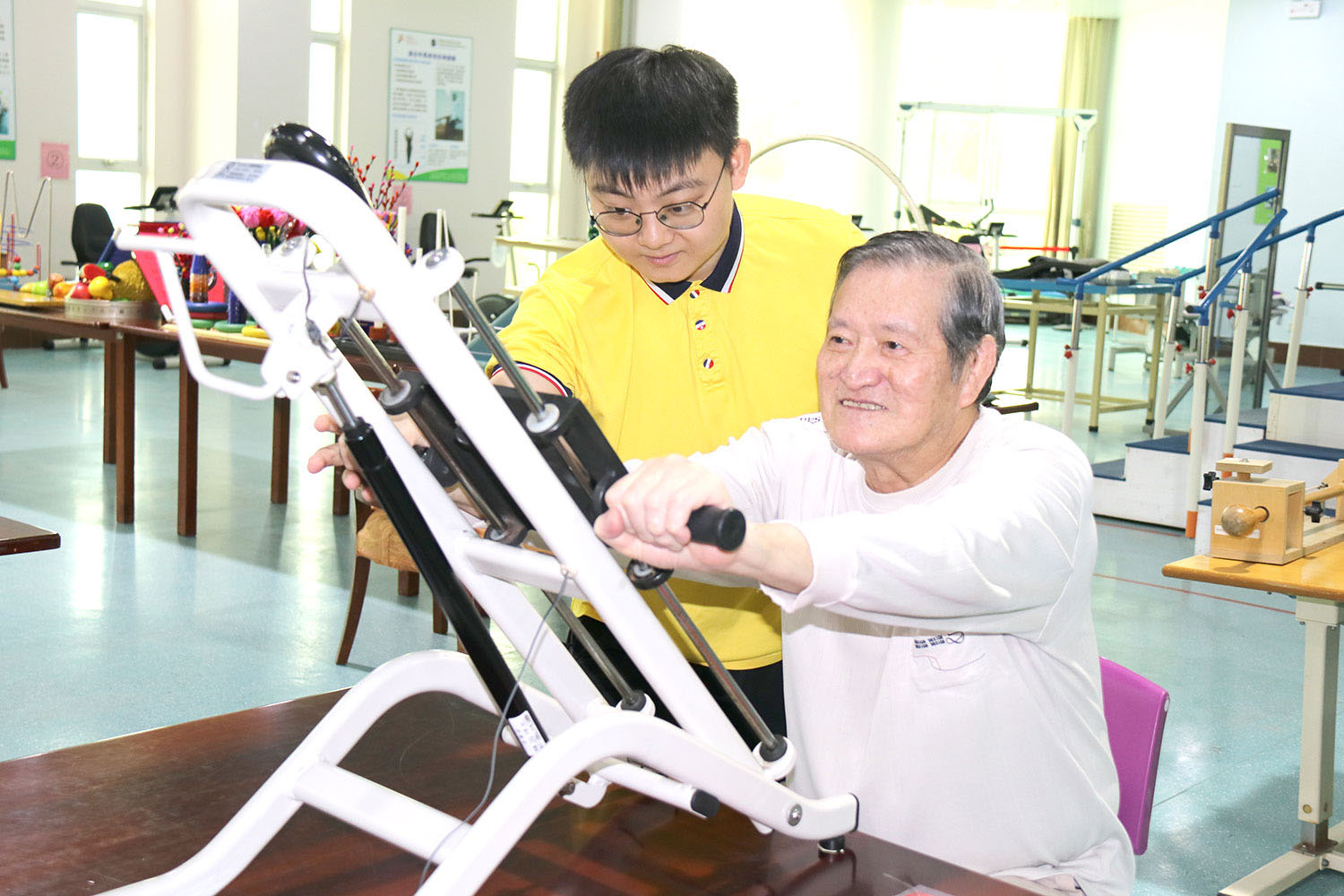Elderly find Guangdong nursing homes offer faster admission, lower costs

At 4 pm on June 6, 89-year-old Li Yung-kan's son arrived at his home in Shenzhen, Guangdong province, to visit him after having left work in Hong Kong.
Li has spent the past 10 months living at the Hong Kong Jockey Club Shenzhen Society for Rehabilitation Yee Hong Heights, a nursing home in the city's scenic Yantian district.
As I am old and no longer capable of working, it would be difficult for me to afford the rent in Hong Kong.
Mak Siu-wah, a Hong Kong resident living in Shenzhen
Li's son frequently visits him in the afternoon and takes him out to dinner, where they chat and drink tea together. Their brief reunions always end at 7 pm.
"This is so that my son can return to his home in Hong Kong by 9 pm, which is really convenient," Li said.
READ MORE: More mainland care homes open to HK elderly awaiting subsidized nursing places
With improvements in the traffic network and elderly care facilities in Chinese mainland cities that are part of the Guangdong-Hong Kong-Macao Greater Bay Area, an increasing number of elderly Hong Kong residents like Li are choosing to move to such cities to retire.
"The surroundings here are beautiful. The place is large, the beds are clean and big, and there is also a lot of activity here," Li said as he explained why he selected Yee Hong Heights as his retirement residence.
Hong Kong is aging rapidly. Last year, the city had 1.64 million people age 65 and older, accounting for more than one-fifth of its population. By 2046, the share of residents in that age group will grow to over one-third — or 2.74 million — of the population, according to an official projection.
The growing number of seniors has placed unprecedented pressure on the city's elderly care homes.
The population census in 2021 revealed that over 330,000 people age 60 and older who lived at home required long-term care, but the city only had about 79,000 nursing facilities. As of January this year, an elderly person had to wait an average of 10 months before being assigned a government-subsidized spot in residential care homes.

Cross-border program
The Hong Kong Special Administrative Region government launched a pilot program in 2014, allowing elderly Hong Kong residents to apply for subsidized positions at two nursing homes in Guangdong province — the HKJC Yee Hong Heights in Shenzhen and the HKJC Helping Hand Zhaoqing Home for the Elderly in Zhaoqing.
Two new elderly care facilities in Shenzhen and Foshan were added to the program in May.
Seniors who want to participate in the cross-border elderly care program can obtain a spot without having to wait. As of March, 171 Hong Kong residents were residing in mainland nursing homes affiliated with the program.
Kwong Wing, 89, settled in the HKJC Yee Hong Heights 10 years ago after he had lived in four nursing homes in Hong Kong.
He enjoys riding an exercise bike in the home's gym, and the administrators allow him to go to the supermarket once a week.
"I think living in Shenzhen is the best choice," he said.
If occupying a subsidized room in a Hong Kong nursing home, people like Li and Kwong would need to spend around HK$2,000 ($256.10) per month to cover the accommodation and basic medical expenses. For participants in the Guangdong program, the fees are waived.
"Now I almost don't have to spend any money on my living expenses, except to buy some snacks for myself," Li said.
Retirement homes on the mainland have also become popular among elderly people who are capable of living on their own.
A survey conducted by the Hong Kong Federation of Trade Unions last year revealed that 87.9 percent of residents age 55 or older are willing to move to the GBA's mainland cities, with Zhongshan, Shenzhen and Guangzhou being the most favorable destinations.
Mak Siu-wah, 65, is living in his own apartment in Shenzhen's Luohu district. The Hong Kong senior has lived in Shenzhen for 14 years.
"If I stayed in Hong Kong, the cost of living would be a big problem," Mak said.
He said he spends around 3,000 yuan ($413.92) per month in Shenzhen. In contrast, he estimates that his living expenses in Hong Kong could exceed HK$10,000.
"As I am old and no longer capable of working, it would be difficult for me to afford the rent in Hong Kong," he added.
Cheung Kwok-sun, 73, has been living in Shenzhen for 10 years, renting an apartment in the city's Longhua district. He said Shenzhen has a more favorable living environment than Hong Kong, and the rent is lower, too.
Medical challenges
By 2022, about 88,000 Hong Kong residents age 65 and older resided on the mainland, primarily in Guangdong. They are eligible for pension allowances, just as they were when they lived in Hong Kong, and can enjoy healthcare services at preferential prices at designated medical institutions, thanks to new measures introduced by the Hong Kong government over the past few years.
Cheung said that at the University of Hong Kong-Shenzhen Hospital — a mainland hospital that accepts Hong Kong's elderly healthcare vouchers and offers treatment to Hong Kong patients at a relatively lower cost — he can see a doctor without having to wait for very long, a common problem at Hong Kong hospitals.
One major challenge for Hong Kong patients, though, is that costs are higher if they require major medical treatment or need to undergo surgery, as they are not covered by the mainland's social security insurance.
ALSO READ: More GBA hospitals to accept HK elderly healthcare vouchers
Cheung said he worries that he won't be able to afford to be hospitalized on the mainland if his health deteriorates in the future.
Kwong also expressed concerns, saying that he has to return to Hong Kong every three months to get some of the drugs he needs that are not available in Shenzhen.
Medical care remains a significant issue for Hong Kong residents living in the GBA, said Terry Lum Yat-sang, a professor of social work and social administration at the University of Hong Kong.
The differences in the equipment and drugs used by hospitals in Hong Kong and on the mainland are also problematic, he said.
Lum suggested Hong Kong and mainland authorities improve the connectivity of the medical systems to better serve Hong Kong residents who are retiring on the mainland.


